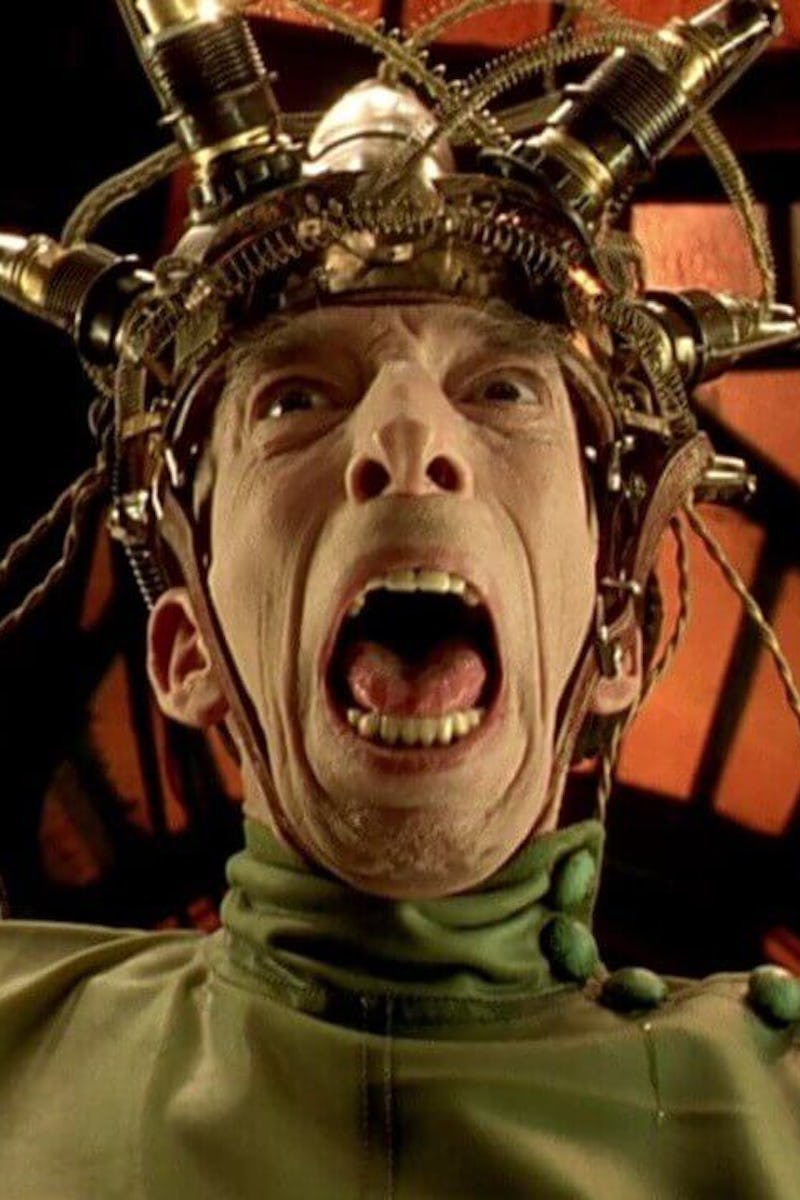
“Will the tale turn to tragedy or have a happy end?”
You need to watch the most unique sci-fi movie on HBO Max ASAP
The 1995 French sci-fi classic 'The City of Lost Children' is leaving HBO Max this month. Here's why you should add it to your streaming watchlist.
by Alex WelchPlenty of memorable sci-fi worlds have been brought to life on the big screen. Films like Blade Runner and Back to the Future Part II are known, among other things, for their impeccably crafted visions of the future. On the flip side of that coin are films like Avatar and Star Wars — iconic largely because of their meticulously designed and visually breathtaking fictional planets.
But few films have created a world quite as unique as this 1995 French sci-fi classic.
The City of Lost Children, directed by Delicatessen filmmakers Marc Caro and Jean-Pierre Jeunet, leaves HBO Max at the end of July. Here’s why you need to take the time to stream it before it’s gone.
A little boy sits in his crib. His eyes, alive with curiosity and wonder, watch the chimney across the room. Moments later, a rope appears in the chimney, followed by black boots and red pants. Santa Claus has arrived, and the little boy is delighted.
But then another Santa Claus appears, and another, and another, until the room is filled with them. The little boy’s smile vanishes, happiness twisting into fear as he grabs his favorite stuffed animal and tries, in vain, to escape the room. The walls begin to twist and bend, reality wavering as the boy’s dream becomes a nightmare. The next thing we see is that of an older man screaming in pain — a strange mechanical helmet strapped to his head.
This is how The City of Lost Children begins. While it’s an undeniably unnerving and zany sequence, it ultimately serves as the perfect introduction to a film in which every scene feels simultaneously dreamlike and nightmarish.
Daniel Emilfork and Dominique Pinon in The City of Lost Children.
Set in a fictional world, The City of Lost Children focuses on the actions of a desperate Frankensteinian monster who steals the dreams of children in the hopes that it will slow his rapid aging process.
Hiding out in an abandoned oil rig, which also counts a talking brain in a fish tank and five identical clones as its residents, the monster Krank (Daniel Emilfork) procures the children from a nearby port town with the help of a cyborg cult. When the adopted little brother of a circus strongman (played by Ron Perlman) is kidnapped by the cyborgs, he and a brilliant young thief team up to track him down and rescue him.
The film’s story is itself a strange mix between a folk fairytale and a gothic horror, so much so that it often feels thematically and tonally akin to the films of Guillermo del Toro. Visually, however, The City of Lost Children is a whole other beast. Heavily indebted to the work of directors like David Lynch and Terry Gilliam, the film’s visual style places a heavy emphasis on the surreal. The repeated use of fisheye lenses, in particular, does a lot to create a sense of unease and disorientation while you’re watching it.
Ron Perlman and Judith Vittet in The City of Lost Children.
The City of Lost Children takes its fairytale-inspired story and places it in a dystopian, industrial world — one awash in an endless haze of greens and yellows, thanks to Darius Khondji’s inimitable cinematography. Meanwhile, the production design by co-director Marc Caro and Jean Rabasse (done in collaboration with Rabasse’s art direction) works to transform the film’s central port town into a kind of steampunk Venice, with its own endless web of sickly, pale green waterways.
The result is a sci-fi world unlike any that the genre had seen before, and one that has yet to be replicated. The same can be said for everything in The City of Lost Children, though, which is a film so wholly original and unique that simply reading about it isn’t enough. Indeed, like all great films, it needs to be seen to be truly experienced.
The City of Lost Children is available to stream on HBO Max until July 31.
This article was originally published on